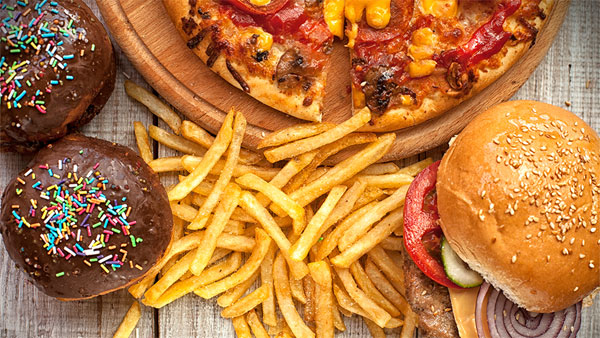Daijiworld Media Network - New Delhi
New Delhi, Sep 12: A new study has found that just four days of indulging in fatty fast food, such as cheeseburgers and fries, can begin to rewire the brain's memory center, potentially leading to cognitive dysfunction. The research, conducted by scientists at the University of North Carolina (UNC), underscores the rapid and damaging impact of a high-fat diet (HFD) on the brain — well before any visible signs of weight gain or diabetes emerge.
Published in the journal Neuron, the study reveals that a particular group of brain cells in the hippocampus — known as CCK interneurons — become abnormally active after just a few days on a Western-style junk food diet rich in saturated fats. This overactivity stems from the brain's reduced ability to absorb glucose, a key energy source, which in turn disrupts memory processing.

“What surprised us most was how quickly these cells changed their activity in response to reduced glucose availability, and how this shift alone was enough to impair memory,” said Juan Song, the study’s lead author and professor of pharmacology at the UNC School of Medicine. She noted that the hippocampus, a vital region for learning and memory, is especially vulnerable to this kind of metabolic stress.
The team’s experiments, conducted on mouse models, showed that after just four days on a high-fat diet, the mice began to show signs of memory impairment.
Notably, researchers identified that a protein called PKM2, which helps regulate how brain cells process energy, plays a central role in this disruption.
Even more promising, however, was the finding that restoring glucose levels in the brain helped calm the overactive neurons and reversed memory issues in the mice. This opens up potential pathways for early intervention in preventing long-term cognitive decline linked to obesity and poor diet.
The researchers also tested whether lifestyle changes could counteract the damage. They found that intermittent fasting periods following a high-fat diet were enough to normalize CCK interneuron activity and improve memory function, suggesting that dietary modifications may be a powerful tool in maintaining brain health.
The study adds to a growing body of evidence linking poor nutrition with mental and neurological health, and raises an urgent reminder: even short-term bingeing on unhealthy food may have immediate consequences for your brain.